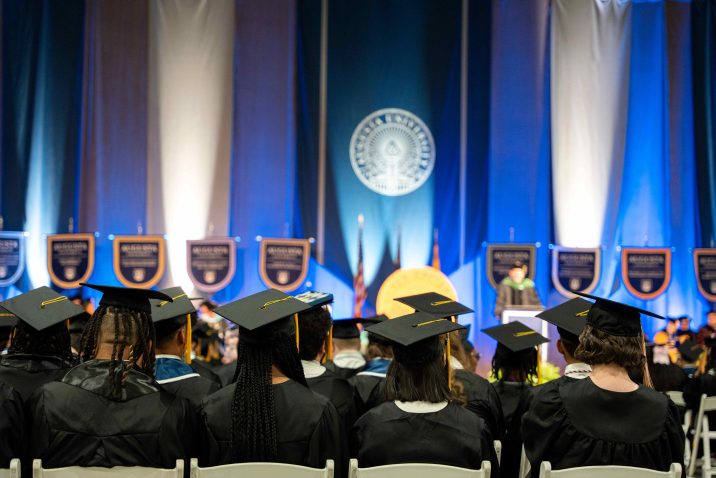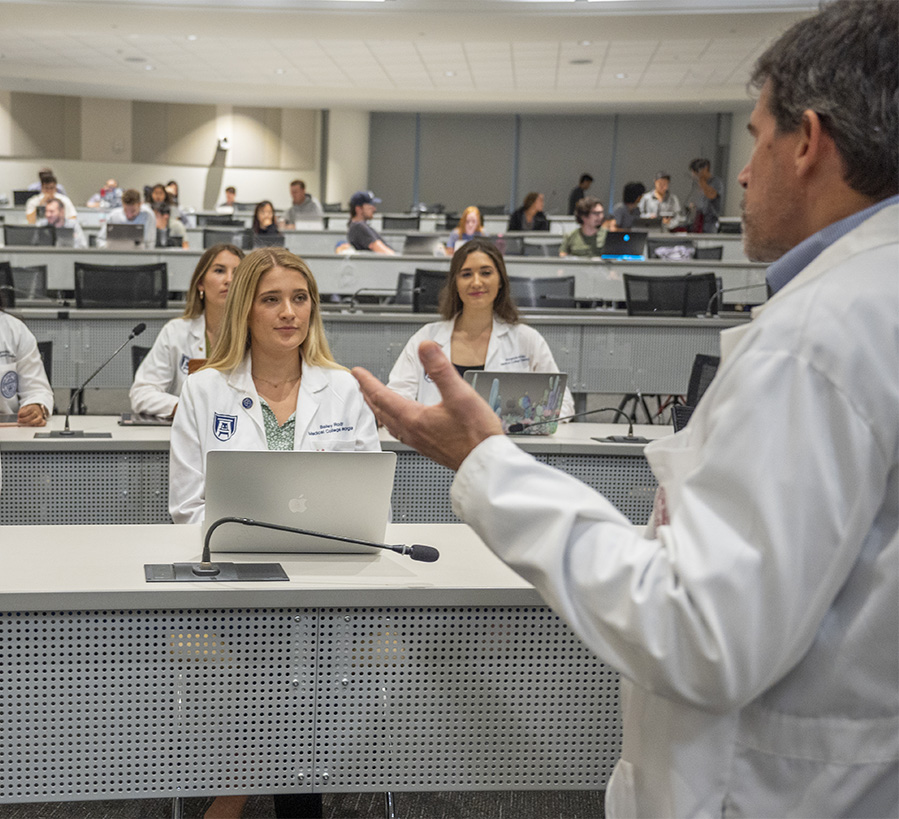Molecular Oncology and Immunology
With a PhD in Molecular Oncology and Immunology, you’ll be prepared for a career in basic and translational biomedical research, either in an academic environment or industry.
The program includes faculty members from clinical and basic science departments for an interdisciplinary approach to research.
Molecular Oncology and Immunology is for you if you consider yourself
Life-Changing
Life-Saving
Education
Want to learn more about the Molecular Oncology and Immunology program at Augusta University?
Request InfoWhat You'll Study
Coursework
Students in Augusta University’s Doctor of Philosophy in Molecular Oncology and Immunology program are admitted via a common admissions process to the Biomedical Sciences doctoral programs. After completing the first-year core coursework and laboratory rotations, students choose a dissertation research mentor and enter the Molecular Oncology and Immunology program.
The average time to completion of the degree is approximately five years of full-time, year-round study.
Curriculum | Admissions Criteria | Tuition and Fees | Application Deadlines



EXPLORE. EXCEL. EXPAND.
Graduate School Advantage
Augusta University's graduate programs are among the best in the nation – and the world – and our graduate students are our most valuable assets. To ensure that our students earn more than a degree, the Graduate School offers a range of opportunities so they can develop the leadership, communication and personal skills needed for a rewarding life and academic, research or professional career.
See what the Graduate School has to offer »
About the Graduate SchoolExperience-based Education
Outside the Classroom
Augusta University is the primary healthcare-focused public research university in Georgia, and the program’s location on the Health Sciences Campus puts you at the heart of the university’s research enterprise.
The Georgia Cancer Center’s Grand Rounds series features talks on cancer-related topics intended to expand interactions and initiate collaborations across departments and disciplines.
Tailored Education
The program allows students to design their own program of study, individualizing learning opportunities and customizing research objectives.
Student Success
Program alumni have found positions in highly respected universities and organizations, including Memorial Sloan Kettering Cancer Center and the Johns Hopkins University School of Medicine.
Specialized Focus
The program’s focus on tumor immunology gives graduates important skills valued by academic and clinical research, medicine and industry.
Diverse Faculty
Molecular Oncology and Immunology faculty come from the basic sciences and clinical medicine to provide a truly interdisciplinary education.
Your Future
Career Options
According to the U.S. Bureau of Labor Statistics the median pay for a medical scientist is $100,890 per year.
Job growth for medical scientists is projected to rise much faster than average.
Profiles
Student Stories
Being an Augusta University Hurricane Irma Emergency Volunteer. It is always a great feeling to help people especially in tough situations like Hurricane Irma
Mohamed Hussein
I want to make a difference in science. Thus, I was looking for a translational research program. Molecular Medicine offered me the opportunity to impact patients’ life with my research.
Leidy Caraballo Galva
Admissions Criteria at a Glance
GPA: Overall GPA of 3.0 on a 4.0 scale at the Baccalaureate level calculated on all undergraduate work.
Degree Requirement: Minimum of a Bachelor’s degree or equivalent from an accredited college or university.
Transcripts: Official transcripts are required from all universities and colleges ever attended. Unofficial transcripts from US colleges and universities can be used in the admissions review process in lieu of official transcripts for this program.
Standardized Test Requirements: None are required for this program.
Letters of Recommendation: Recommendations from three individuals must be submitted through the application portal.
Resume: Applicants must submit a resume or curriculum vitae within the application portal.
Research Experience: Research experience is required for admission. Within the application, you will be prompted to provide both personal and research statements. Please consult the application for the full statement prompts.
International Students: Please review the verification process for international transcripts and the english proficiency requirement.
Tuition & Fees Estimate
$4,801*
Estimated total
Full-time / In-State / Per Semester
$401
Tuition Per Hour
$675
Mandatory Fees
View Detailed Program Tuition
*Tuition & Fees listed here are for in-state students enrolling in the university for Fall 2025 semester.
Detailed Program Tuition InformationApplication Deadlines
Fall '26 International Deadline**
- December 1, 2025
Fall '26 Deadline
- December 1, 2025 - extended to December 15, 2025
Early submission of all application materials is strongly advised.
All required application materials and documents must be received in order for an application to be considered complete and before an admission decision can be made. The program does not accept applications after the published application deadline, however the program will continue to accept application materials up to 2 weeks after the application deadline.
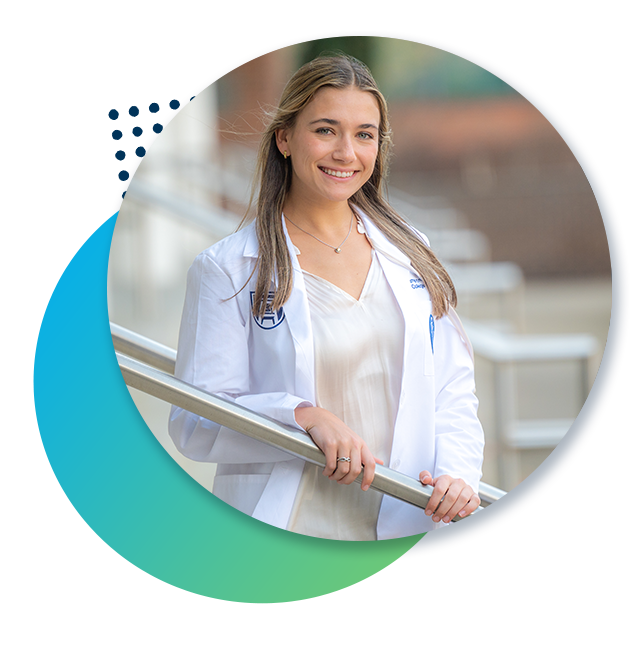
Why Augusta?
The program’s focus on the development of new approaches to disease treatment through the unique combination of basic science and translational medical research prepares graduates to make a difference in a variety of different environments.
Individualized programs of study allow you to tailor your research and focus on your career objectives.
The diverse, internationally recognized faculty provide the full spectrum of biomedical research training.
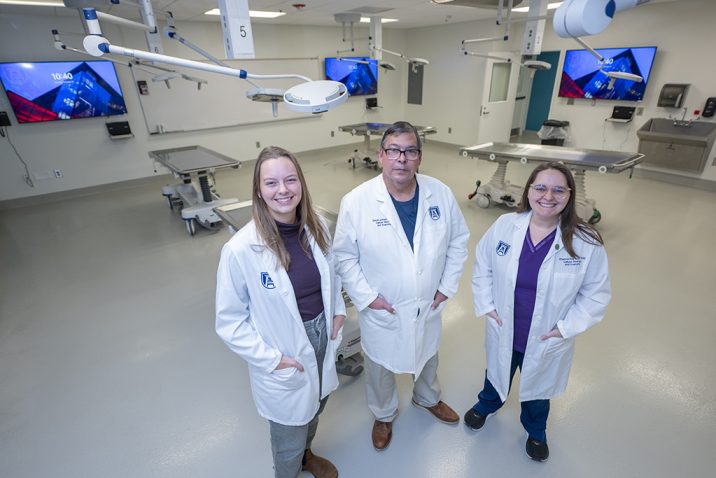
Families leave lasting contribution to medical science with body donations
Families leave lasting contribution to medical science with body donations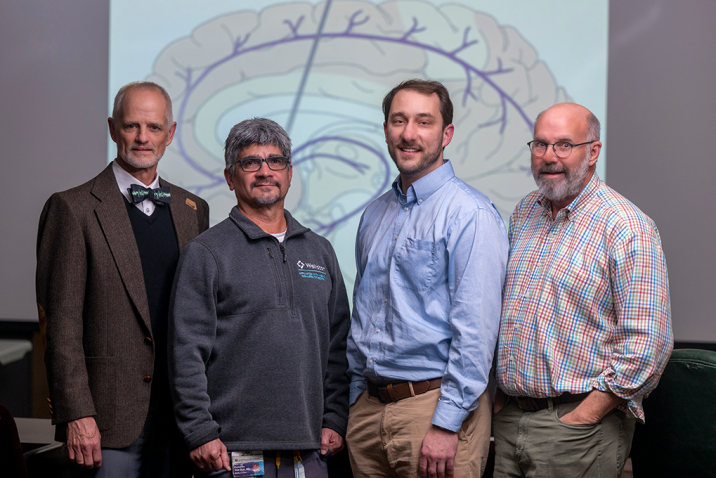
MCG starts human trials on deep brain stimulation for Alzheimer’s patients
MCG starts human trials on deep brain stimulation for Alzheimer’s patients